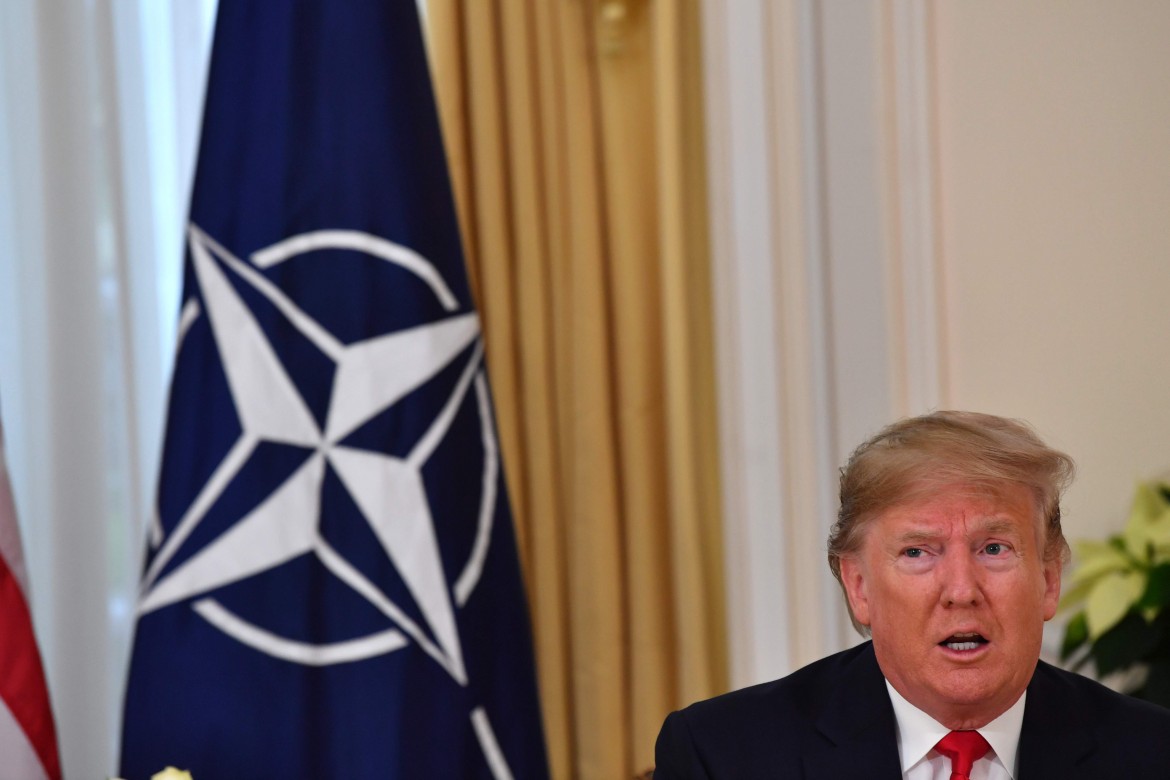Analysis
Trump’s trade threats are throwing a wrench in the NATO summit
US protectionism, a weapon in its trade war against China, is likely to hit the EU as a collateral victim. Conflicts over the economy and trade led to a sour start to the already inauspicious summit.

The NATO military alliance is celebrating 70 years of existence in London, in an atmosphere of general nervousness. But conflicts over the economy and trade led to a sour start to the already inauspicious summit.
On Tuesday, the first—and highly tense—bilateral meeting took place between Donald Trump and Emmanuel Macron. That was followed by a meeting in Downing Street between Britain, Germany, France and Turkey, a French initiative aimed at clearing up the conflicts caused by Ankara with its intervention in Syria and its aggression against the Kurdish Western allies. (That issue had previously led Erdogan lobbing insults against Macron, with the summoning of the Turkish ambassador in Paris to the Quai d’Orsay earlier this week.)
Once again, Trump waved around his favorite weapon: that of imposing (or threatening to impose) tariffs on products imported into the US to fight off competitors. On Tuesday, Trump targeted a number of products from France and Italy, two countries which the US blames for having imposed the so-called GAFA tax. Named for Google, Apple, Facebook and Amazon, this national tax on digital multinationals (3% of annual turnover generated in France) is pending the conclusion of negotiations underway at the OECD, which are attempting to establish a worldwide tax to strike back against the “tax optimization” carried out by these large companies.
First of all, Trump said he would “punish” Macron, who had made the “very, very nasty” statement that NATO was “experiencing brain death.” To enact this “punishment,” Trump chose to mix up the issues of NATO and trade, threatening to slap tariffs of 100% on roquefort cheeses, yogurt, champagne, cosmetics and handbags made in France (goods worth a total of $2.4 billion), in apparent retaliation for the French GAFA tax, which he had already called “very anti-American” over the summer.
At the G7 summit in Biarritz during the summer, Macron managed to avoid at the last minute the imposition of US tariffs on French wine (after the Bordeaux wine makers sent Trump a few bottles). Macron had promised that the GAFA tax would be only temporary, pending an OECD agreement, and that France would refund the difference paid to the US companies. The Biarritz agreement set out a deadline for negotiations which expired a few days ago.
And now, tensions have peaked once more between the countries. The French Finance Minister, Bruno Le Maire, called the American threat “unacceptable” and added that it was “not worthy of an ally, and it’s not the behavior we expect from the US toward one of its main allies, France, and more generally, Europe.” Le Maire had said on Monday that “my message will be clear: We will never, never abandon this justified determination to tax digital giants.”
France and Europe are wondering where the US stands, which, after having pushed for a solution at the OECD on a worldwide digital tax, now seems to have changed its mind. Back in July, the US Senate already approved the project for a worldwide tax determined by the OECD, aimed at an equitable division of income between the countries where the companies have their registered offices and the countries where their profits are made. The EU has also put all its hopes in the OECD (the body commissioned by the G20 to propose a solution), because it has not been able to reach internal agreement for a European tax: the countries where the US giants are headquartered, with Ireland at the head, have vetoed such a measure in order to avoid losing the advantage given by their low tax regime.
Italy’s shy stance says a lot about the lack of common resolve on the EU front in this highly consequential battle, even as the Commission said yesterday that it would begin “immediate discussions” with the US “to solve this issue amicably.” The EU fears that tariffs will soon be imposed on Airbus, which the US has accused before the WTO of having been unfairly subsidized. Trump has placed tariffs of 25% and 10% on steel and aluminum imports respectively, aimed at hitting China, and just a few days ago cancelled the exemptions previously granted to Argentina and Brazil.
US protectionism, a weapon in its trade war against China, is likely to hit the EU as a collateral victim. At the NATO summit in London, the issue of the trade war was intertwined with the tensions within the alliance, as Washington demanded once again that the Europeans spend 2% of their GDP for the military sector. France is the only country that will get there by 2025 (while Germany won’t do so before 2030).
Originally published at https://ilmanifesto.it/lantipasto-del-vertice-nato-trump-minaccia-dazi-contro-leuropa/ on 2019-12-04
